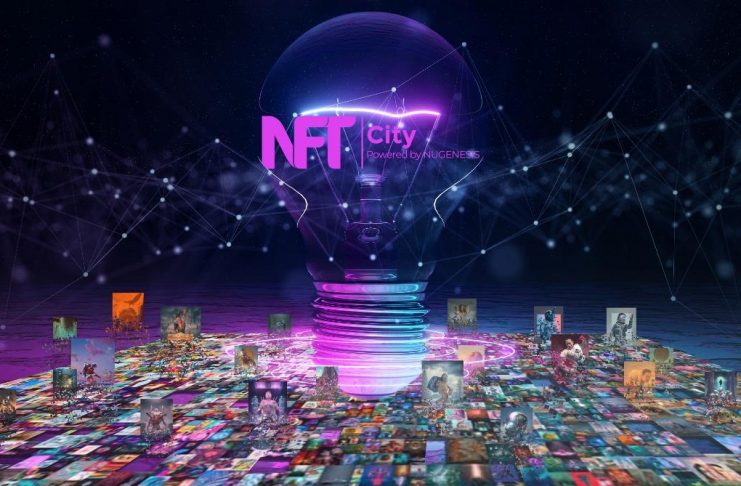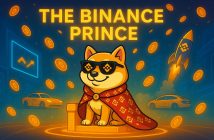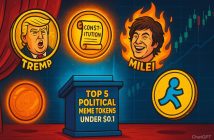NFTs may be raking in thousands of dollars for investors so far but that doesn’t mean that there are no risks in buying and selling them. Find out the risks of trading NFTs. The newly launched NuGenesis NFT platform reduces those risks.
Are there risks associated with using NFTs?
It seems like everyone is talking about NFT everywhere you turn. These digital assets are the latest internet craze, but there’s a lot more to how they function. Many people are tempted to create theirs, especially with several people talking about how much they have made so far. But is this the right move? To understand the risks associated with NFTs, we have to explore how it works first.
How NFTs work
NFTs are unique digital assets that have become highly valuable collector items in recent times. As soon as an item has been converted to a token, that means its digital certificate of ownership is available for sale. The blockchain is the system that keeps a record of every transaction on NFTs, and most NFTs are on Ethereum. One advantage of having NFTs on the blockchain is that tracking is easy, and ownership can’t be forged since blockchains are secure. NFTs can also include the artist’s digital signature, which guarantees that this person receives a share of the proceeds from its sale.

With the popularity of NFTs increasing with every passing second and the prohibitive costs of gas fees on Ethereum, Layer 1 blockchains such as Cardano and Solana have come to fill the need. The latest innovation is the NuGenesis gasless interactive NFT Platform. NuGenesis has four patents pending on key aspects of its NFT platform which together provide unlimited scale and transaction speeds, are cross chain interoperable recognizing cypto assets in 29 languages and is totally carbon neutral. That is, it involves no resource usage that running your smart phone anyway.
Gasless NFT revolutionize the market. When transactional gas fees of $300 are not uncommon, it is not surprising that current NFTs on Ethereum are static. NuGenesis’s platform is designed for NFTS becoming so interactive that they can seamless be developed and applied to games or have commercial application such as storing health records. Indeed NuGenesis blockchains are built in contemplation of billions of transactions where NFT evolved into virtual reality.

But what risks are associated with NFTs. Here are a few of them.
What are the risks of investing in NFTs?
- You can’t predict the value
NFTs are collectibles of extreme price volatility. However, you have no way of truly predicting this trend. Compared to actual paintings or trading cards, the demand for NFTs is still slowly rising, but it is unlikely that it would reach that sort of demand. If you buy an NFT at a huge price, but it ends up reducing in value, or you’re unable to sell, that’s a huge loss. While anyone can create an NFT, there is no guarantee that you would sell it successfully. If you can’t, that’s a waste of both time and money, both resources that no one wants to lose.
NuGenesis says that whilst it is not possible to protect against the vicissitudes of a volatile market, it identifies that NAVIS (NuGenesis Artificial Validation Intelligence System), that is a protective system preserving the integrity of the system, also gives price predictions of the market based on several factors including measuring social sentiment that has been surprisingly accurate. It provides tools for gauging market euphoria.
However, says NuGenesis, NFT technology is not about social fashions, but its inherent capacity to revolutionize any industry involving substantial data. The example is the $10Trillion health industry where NFTs become portable and immutable and interact with practitioners, hospitals and pharmaceutical providers. It is these industries that will experience unprecedented growth that will defy market cycles.

- They are not exactly stored on the blockchain
Sure, we mentioned earlier that all NFT transactions are recorded using blockchain technology, which ensures proof of ownership. However, the actual NFTs are not stored on blockchain but marketplaces like Rarible and Open Sea. What would happen if any of these platforms were to shut down suddenly? There is a high chance that you won’t be able to retrieve your NFT if this should happen. Therefore, when it comes to being secure, your NFTs are not as safe as physical trading cards or the precious real-life art you have hanging on your walls.
NuGenesis’ answer is that its NFTs are minted on the Layer 1 blockchain and market places are parallel processing chains in the NuGenesis blockchain system. The NFTs are immutable and incorruptible. The decentralization ensures the security of the blockchain.
NuGenesis offers portable NFT wallets that can be used to display the art on Wall mounted display or even an appliance like a fridge. NuGenesis crypto assets cannot be hacked because the hacked asset can be burned and restored to its rightful owner. Losing mnemonic phrases, laptops or even hardwallets does not spell the doom it does for other blockchains, instead restoration is possible.

- It is not regulated
Many lovers of cryptocurrencies are fans of this digital currency because it is not regulated and exists outside the control of government agencies. However, there is also a downside to this lack of regulation. NFTs are not regulated as well, which means that every transaction would involve a great deal of trust. So, you would have to trust that you’re indeed buying a unique piece that wouldn’t land you in copyright troubles. You also don’t have anyone to complain to or hold accountable if something goes wrong.
As most investors would say, nothing good comes without taking risks. However, it’s always best to invest in NFTs when you fully understand how they work and are ready to accept the outcome.
NuGenesis says that risks of bad actors is always present in unregulated markets but it is here where experimentation and innovation are also often at their highest. NuGenesis says its cross chain system allows exchange between NFTs on different platforms and the risks of duplication from other chains is reduced.
The promise however is that NFTs increase the verification of the unique asset, in a way that cannot be corrupted or changed. In cases of extreme fraud, ill-gotten gains can be burned and rightful ownership restored to the owner. The ultimate protection is the market and the increasing sophistication of the players in it.




